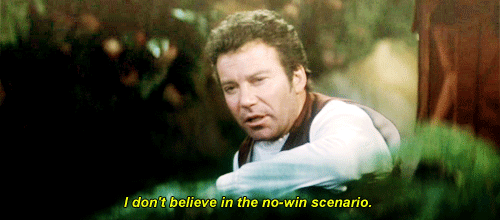Campbell
Relaxed Intensity
My personal stake is that (at least for my enjoyment on either side of the screen) that something needs to be at stake and that tension needs to be real. I would also prefer that what is stake be as immediate as possible, rather than just attrition. I don't think it needs to be a player character's life on the line or even whether will defeat whoever they are facing in combat as long as something the players really care about is on the line. It could be stopping a ritual before it goes off, trying to save an ally, trying to turn an enemy, etc. When you are individually stronger than the opposition you face secondary objectives are key to making play feel compelling.
These sorts of secondary objectives played a huge role in our L5R game. Our 3 bushi started the game as pretty damn competent and by the time we reached Rank 3 there were very few samurai who could individually match either of our duelists. So much of the challenge came from secondary objectives: protecting NPCs we cared about, rallying troops, preventing rituals, trying to capture rather than kill, conducting ourselves honorably in combat (at least for the other two bushi who were Dragon clan rather than Scorpion).
Also, sometimes you are just that good and it might not be combat that challenges you. There will be some challenges that you could easily dispatch physically, but the cost of doing so might be too high or require lateral thinking to pull off. This has often been the case for Brujah in our Vampire games. No one wants to face Ignacio Valdez (one of the player characters in my last chronicle) up close and personal, but very few are willing to try without some backup.
These sorts of secondary objectives played a huge role in our L5R game. Our 3 bushi started the game as pretty damn competent and by the time we reached Rank 3 there were very few samurai who could individually match either of our duelists. So much of the challenge came from secondary objectives: protecting NPCs we cared about, rallying troops, preventing rituals, trying to capture rather than kill, conducting ourselves honorably in combat (at least for the other two bushi who were Dragon clan rather than Scorpion).
Also, sometimes you are just that good and it might not be combat that challenges you. There will be some challenges that you could easily dispatch physically, but the cost of doing so might be too high or require lateral thinking to pull off. This has often been the case for Brujah in our Vampire games. No one wants to face Ignacio Valdez (one of the player characters in my last chronicle) up close and personal, but very few are willing to try without some backup.



